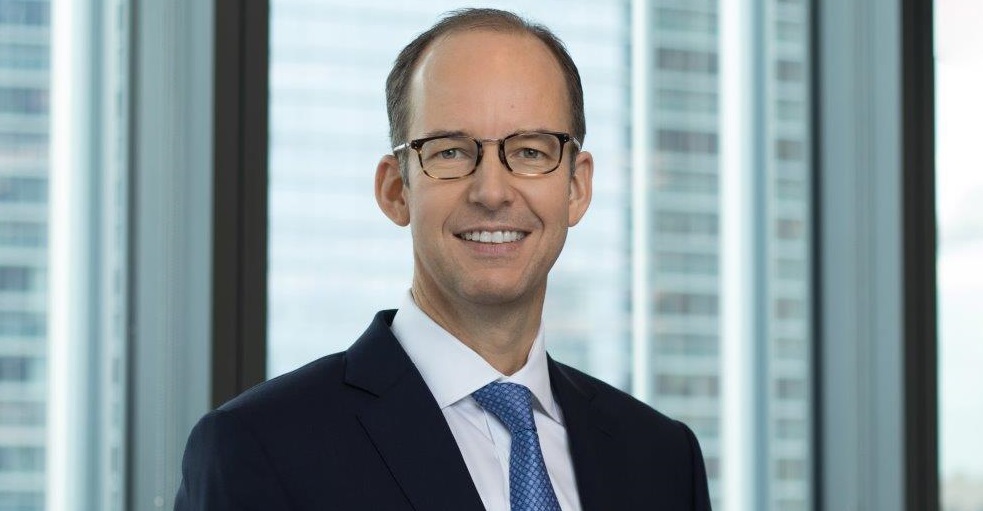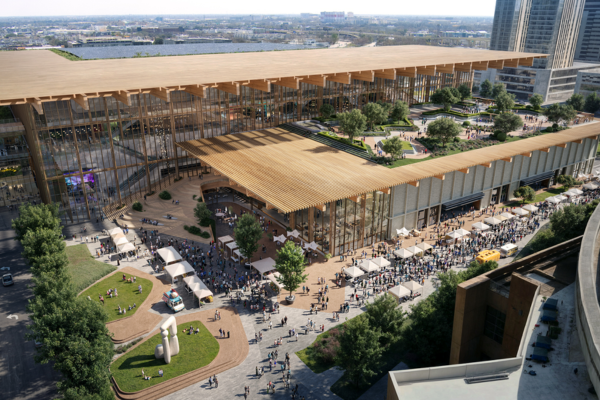The Circular Economy: Industry Looks to Tackle Waste
Published Oct 25, 2019 by A.J. Mistretta
How can industry lead the charge to remove one-time-use plastics and other waste and pollution out of the environment? The concept of the circular economy looks beyond the consumption of finite resources to design a method of keeping products and materials constantly cycled back through the value chain for reuse. The obvious benefits: lower energy and resource consumption.
Thomas Hundertmark, senior partner at McKinsey in Houston, will speak on the circular economy idea at the Partnership’s next Business Beyond Borders event on November 12 at Partnership Tower. He will discuss what initiatives Houston’s global companies are taking and the potential impact that transitioning to a circular economy has for global businesses.
Hundertmark counsels clients in the chemicals, agribusiness, and oil & gas sectors. He leads McKinsey’s global knowledge agenda on plastic re-use, working with companies on the value chain around the issue and has also published on the topic. We posed a few questions to him in advance of his upcoming presentation.
The idea of one-use containers is a relatively new, 20th century concept. Can you talk a bit about how we got here?
There are two things at play here: First, on the demand side, modern consumers live in a fast-paced world where convenience and flexibility are greatly valued – whether it's last-mile delivery or single-use containers, these are now all expectations for the modern way of life. Second, on the supply side, this trend is enabled by technology advancements – with materials like plastics, it is now possible to design light-weight and disposable containers that could be customized for the specific requirements across different industries, whether it's for food, medicine, storage, transportation, or other means. From a free market perspective, this all seems to be working fine – a clear demand for single-use products is being met by a technology-enabled supply. However, there is an important externality that we have not foreseen -- the increasing amounts of post-consumption waste which have not been priced by the market and are now becoming an increasingly visible societal challenge.
There appears to be a groundswell among the major players in the plastics and petrochemical industries to face this problem. Do you see it as a truly legitimate effort or is it too little, too late?
It is important to first disentangle plastics and plastic waste – as a material, plastic has been an effective solution that has helped support the growth of the middle class while balancing climate challenges and resource limitations. Plastic waste is a growing societal problem and will require collaboration across industries to address appropriately – of course, petrochemical companies and plastic producers should and need to help move the needle here, especially where they can leverage their existing capabilities in material processing.
There is more potential for investments and technology innovation in the plastic circular economy space – value chain economics and transparency of recycling markets will be key to accelerate plastic recovery and reuse. It is also important to remember that while plastic waste is a global problem, the key challenges to address plastic waste differ across locations and therefore, the solutions need to be designed for the specific local context.
In your article No Time to Waste, you write about the issues facing various forms of recycling that makes them less efficient. What can businesses and corporations outside of the plastics/petrochem industry do differently to improve recycling effectiveness?
Shifting from a linear production process to a circular plastic economy will require collaboration across the plastics value chain – besides plastic producers, this should also include packaging companies, CPG brands, retailers, waste management firms, governments, and consumers. There is also a clear need for national and global frameworks to establish principles on how to deal with plastic waste. And education matters: promoting awareness of the importance of recycling and changing consumer behavior are things that we can all do.
We all recognize there are parts of the developing world that have no legitimate waste capture system. Some have suggested the effort put into recycling in industrialized nations is negated by the rampant flow of waste into the environment by other countries. What are some ways this can be addressed in the short and long-term?
It is important to account for the full lifecycle of plastics, including its end of life. Several developing countries have banned or announced proposed bans on waste imports from developed countries. Many of these countries want to instead focus on better managing their mounting domestic waste.
Given the different levels of progress that have been made in plastic recycling across the world, there is a lot of opportunity for global partnerships, transfer of knowledge and technologies, and cross-border investments. One example would be in waste collection: the biggest waste problem in many developing countries is the lack of collection infrastructure, which is something that the developed world has also once struggled with but has now largely addressed.
Register to attend the Circular Economy event on November 12 and learn more about Business Beyond Borders.
 The Houston Report
The Houston Report




















